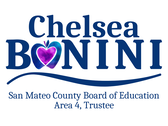|
In 1994, I earned a Bachelor of Science (B.S.) degree with a double major in Elementary Education & Psychology from Russell Sage College in Troy, New York. I was in multiple practicum placements in Grades 1-5 in urban, suburban and rural schools during all of my classes, and I did my final Student Teacher placements in First and 4th Grade Classrooms in both a rural setting (near the border of New York State and Vermont) and in an urban setting (in the City of Troy, New York) in my final year of study. At this time in teacher education and training, it was the era of "whole language" reading instruction.
When I got my first position teaching kindergarten and then first grade at Skyline Elementary School in the South San Francisco Unified School District, I was thrilled -- and my immense training served my students well. We studied science and social studies themes, we created class books, we studied authors, and my classroom was infused with art and discussions that branched from subject to subject. My students are now what we fondly refer to as "millennials" and they were spectacular. The ones that I know now, as adults, are thriving with families, advanced degrees and are engaged in important work in the community -- many of them in educationally related jobs! Teaching was a joy, but it was also one of the most difficult jobs I have ever had in my life. It was exhausting, both physically and emotionally. Teachers who are enthusiastic foster that same enthusiasm in their students, but in order to maintain energy and passion for this profession, teachers must be respected for the work that they do, and they must be allowed to express their creative freedom in teaching, inspiring and engaging students in the learning process. By 1997-1998 when the "Standards" were being introduced in California, I was on my way to law school, as my analytic nature got the better of me. These new standards were very different, they were skills based (not theme based), they were test based (not experience based). From my perception and input from my teacher colleagues, they appeared to move everyone up a Grade -- the play-based kindergarten model turned into what had formerly been first grade (reading instruction, not just reading readiness) and so on and so forth for each subsequent grade level. My colleagues were horrified (especially the long-time kinder teachers), but they adapted... and so did the kids. I was away from classrooms from 1998-2009, at which time my first son entered kindergarten in the San Mateo-Foster City School District. By this time, the Standards were in full force, kindergarteners were expected to read by year's end... rather than the end of first grade goal in place during my tenure as a teacher. This did not appear to be developmentally appropriate for some kids, but others came in reading, as parents were working with kids outside of school to "prepare" them, knowing this was the intended curriculum. My son did learn to read by the end of kindergarten, which I found impressive. By 2011-2012, we learned of the introduction of the new Common Core Standards, which were going to be adopted by the State of California. These Common Core Standards espoused the use of deductive skills, reasoning and inquiry on real life topics, and they came with a focus on more non-fiction texts, rather than the typical fiction "stories," and there was a surge of the Standards-based, small, leveled books that were coded by letters and numbers for relative reading skill (which brought back memories of my own leveled reading books in the late 70's and early 80's as an elementary student myself... long before whole language). These Common Core Standards seemed to include the "basics" of phonics and leveled readers, with a concurrent desire to study "themes" and explore real topics (which reminded me of the thematic and cross-curricular tenets of the whole language era). I was intrigued. So much so, that in 2013, I decided run for the San Mateo-Foster City School Board. I thought that my background in teaching (and especially my understanding of Whole Language - and what I saw as a relationship to the "new" Common Core) as well as my work practicing as an attorney and my love of policy and contracts law, would be a good set of skills and experience for a school board member to have. I served in this capacity from 2013-2017. During this time, I had the pleasure of visiting schools, classrooms and conferences -- and meeting teachers, staff and administrators who were passionate about their work. Many of them reminded me of my myself as a new teacher and an observer of the systems once I had moved to another profession and entered it again as a parent and PTA leader. As I reflect on the past 30 years, my honest feeling is that, while standards will come and go, and hopefully will evolve for the better for our kids, teachers are asked to change with the tides of pedagogy, to learn new tactics, to incorporate new curriculum... but in the end, we must support their passion and love of their profession. We must make sure that they have the support to take care of themselves, to fine tune their practice of teaching their beloved students, and to maintain their energy to ensure that all kids are inspired to inquire, learn and grow. Everything that Districts do to ensure high academic achievement of kids must be accomplished by passionate and engaged teachers, so teachers must be a primary focus for all Districts when it comes to improving student learning and achievement.
0 Comments
|
Archives
August 2023
Categories |
|
Working Every Day to Create Opportunity, Inclusion & Accountability in San Mateo County Schools |
Copyright © 2021
 RSS Feed
RSS Feed
